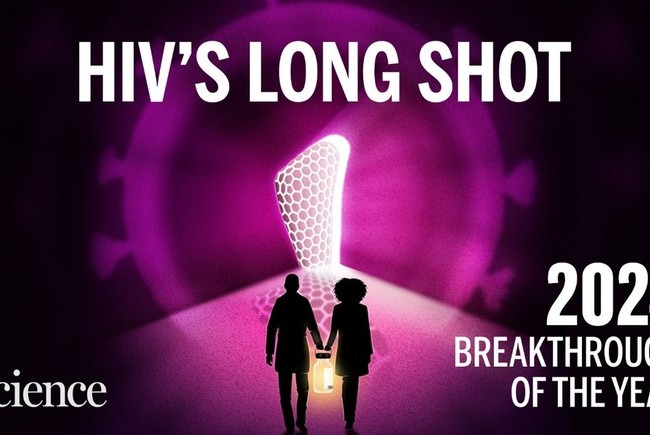A doctorate programme for progress
22 December 2023 | Story Nicole Forrest. Photo iStock. Read time 6 min.
Several South African universities, including the University of Cape Town (UCT), have partnered with Scotland’s University of Stirling (UoS) to address the PhD shortage currently faced in South Africa.
Funded by the Department of Higher Education and Training’s (DHET) University Capacity Development Programme (UCDP) in collaboration with the British Council, the SA–UK DHET Doctoral Training Programme offered 10 health sciences PhD scholarships to staff at historically disadvantaged institutions (HDIs) to enhance academic development and research at these centres of learning.
Academics at the University of Fort Hare (UFH), Walter Sisulu University (WSU) and Sefako Makgatho Health Sciences University (SMU) were eligible to apply for the scholarships. At present, nine of the current 10 candidates are registered at UoS on a cotutelle programme.
Partner universities aimed to have 70% of academic staff registered for PhDs by 2023 to increase the recruitment of PhD candidates and knowledge production while improving the supervisory experience, in line with the strategic development plans for each of these institutions.
Addressing disparities
While South Africa has been a democratic, non-racial society for nearly 30 years, the legacy of apartheid is still evident in many of its tertiary educational institutions. At these universities, just a fraction of the staff has obtained a PhD, which is globally recognised as the highest level of degree and a requirement for faculty tenure.
The doctoral project aims to bolster the research and supervisory skills of the participating academics, thereby enhancing the quality of teaching and research at their universities.
“Our project is addressing the low number and unequal distribution of academics with PhDs at universities in South Africa,” said Dr Naomi Brooks, honorary senior lecturer at the Faculty of Health Sciences and Sport at UoS.
“Men are more likely to hold a doctorate than women, and black academics are under-represented.”
“Less than half of permanent instructional and research staff at South African universities hold doctoral degrees. Men are more likely to hold a doctorate than women, and black academics are under-represented.
“Working with partners, we are building capacity and hope to establish a self-sustaining programme of development that enables academics with PhDs to train the next generation of researchers and develop academic and community relationships throughout the country.”
This sentiment was echoed by Professor Alison September of UCT’s Department of Human Biology.
“Collaborations in this programme are focused on health sciences research, towards increasing the academic capacity at UFH, WSU and SMU; support for black and female academic staff; enhanced collaboration opportunities; resources for capacity development, and institutional learning,” she said.
Internationalising academic impact
In addition to promoting academic excellence, another key focus for the doctoral project is to open opportunities for strengthening the participating universities’ international strategic partnerships and academic collaborations.
“In the long term, we envisage that the project will create a broader SA–UK network of institutions for knowledge exchange and bi-directional learning as well as research, and we look to further expand the doctoral training programme through future investment,” said Dr Brooks.
Professor September added: “Upon completion of the programme, the newly minted PhD holders will contribute to increasing institutional supervisory capacity, improving the supervisory experience, and leveraging the research and teaching networks for stronger academic and community relationships in South Africa and with the UK.
“The long-term goals are to build on the research momentum, empowering candidates to present internationally, complete their research aims, and obtain their PhDs.”
“The programme’s strengths lie in cooperative collaborations, drawing on expertise and resources from South African and [Scottish] institutions.
“The long-term goals are to build on the research momentum, empowering candidates to present internationally, complete their research aims, and obtain their PhDs, positioning them to lead sustainable independent research at their host institutions, becoming research leads on the continent [and] competing in the global arena.”
Tackling national development goals
The project supports South Africa’s National Development Plan (NDP).
“South African universities, in accordance with the NDP, are committed to addressing poverty and inequality by 2030. This involves fostering an inclusive economy, enhancing state capabilities and promoting societal leadership,” noted September.
“A key focus of the NDP is health, necessitating increased academic capacity to train healthcare professionals, expanded research on societal and physiological health factors, and the implementation of evidence-based disease prevention strategies in South Africa.”
In line with this, the chosen research areas are aimed at helping to improve the understanding of the underlying societal and physiological factors that influence health and disease in South Africa.
“The research has a special focus on mental health in an academic environment, health systems strengthening, child health and non-communicable diseases in both rural and urban settings,” explained September.
Fostering collaborations
As part of the programme, each of the university partners hosted a workshop to strengthen research networks and encourage collaborations between the various institutions. From 30 October to 3 November 2023, UCT hosted 23 delegates (10 PhD candidates, lead representatives from each university and programme board members) in pursuit of these goals.
“It was our pleasure to host the 10 academics at a five-day workshop in October, together with the executive leaders of the programme,” September said.
“One of the highlights of the workshop was the networking event, which allowed the candidates an opportunity to pitch their research and provide an opportunity for sharing new ideas and invite potential collaborators.”
 This work is licensed under a Creative Commons Attribution-NoDerivatives 4.0 International License.
This work is licensed under a Creative Commons Attribution-NoDerivatives 4.0 International License.
Please view the republishing articles page for more information.
Faculty of Health Sciences News
.png)
In the wake of World AIDS Day on 1 December and at the conclusion of the 16 Days of Activism against women and child abuse we shine a light on the relationship between the HIV pandemic and gender.
11 Dec 2024 - 7 min read























